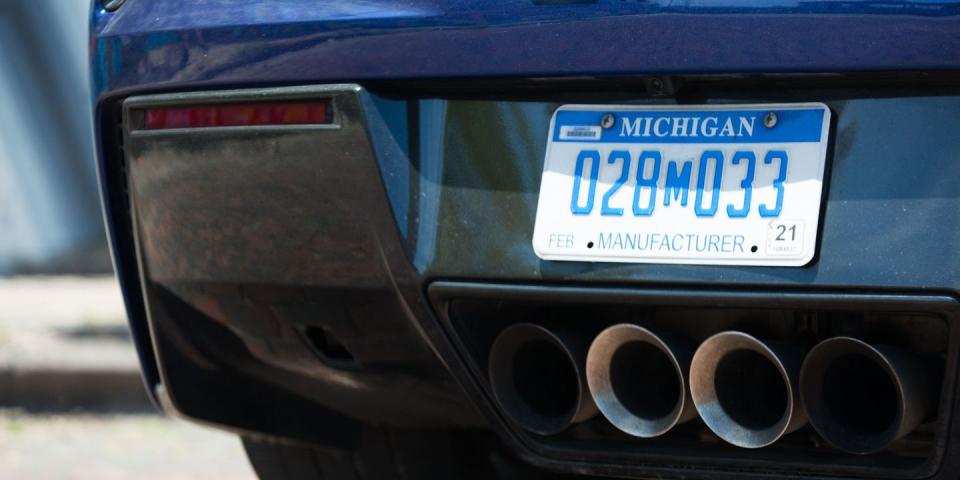Why Are Modern Cars' Tailpipes Often Dirty?

In the past, a black tailpipe in a gasoline-powered car meant one thing: a fuel mix that was too rich, or sub-stoichiometric, causing unburned hydrocarbons to coat the inside of the tailpipe. Today’s engines run three-way catalysts to scrub any unburned hydrocarbons that escape the various other emission-control systems, leaving very few to darken our tailpipes.
And yet, many modern tailpipes are blackened. According to John Hoard, an associate research scientist in the mechanical engineering department at the University of Michigan, gasoline direct-injection engines, like diesel engines, have a tendency to produce particulate matter, also known as soot. This unfortunate byproduct is a result of direct injection engines' tendency to produce small clusters of rich air/fuel mixture, as well as coat the cylinder walls with liquid gasoline, leading to what are known as pool fires. These conditions are particularly apparent not during aggressive driving but under low load conditions because the intake velocity isn't sufficient to generate the swirling effect needed to effectively mix fuel and air and eliminate any rich areas. Toyota and Ford, among others, have switched to dual injection (both port and direct fuel injectors) in part to combat this phenomenon and increase overall efficiency.
Modern diesel engines have particulate filters to counter soot production. Diesel particulate filters occasionally run a regeneration mode in which the exhaust temperature is increased and the trapped soot burns off, reducing filter pressure. In most cars this happens in the background without the driver having any knowledge of its occurrence, though owners of modern diesel vehicles know when this happens as fuel economy drops precipitously. Gas engines in the States are soon to follow their compression-ignition brethren and Volkswagen has even introduced particulate filters for a few of its engines in overseas markets, notably the turbocharged 1.0-liter inline-three in the Up! GTI.
('You Might Also Like',)

 Yahoo Autos
Yahoo Autos 